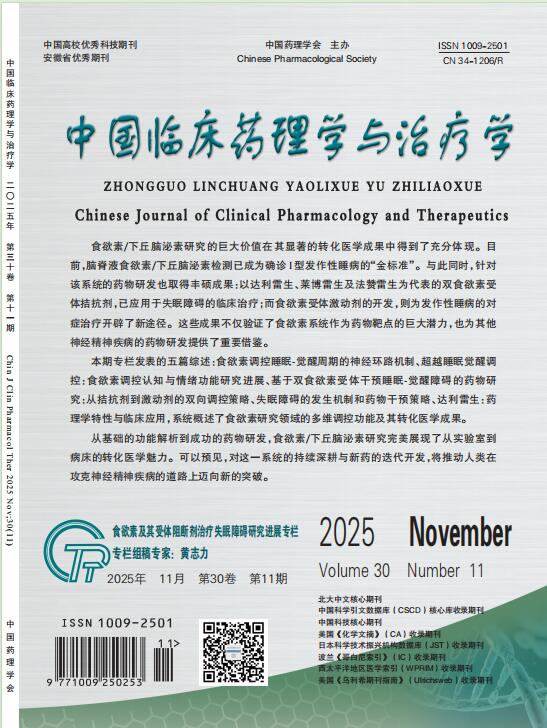Protective effect of breviscapine on cerebral ischemia-reperfusion injury and therapeutic window of opportunity
HE Wei, CHEN Hui, ZENG Fan-Dian
2003, 8(3):
278-281.
 Asbtract
(
227 )
Asbtract
(
227 )
 PDF (170KB)
(
520
)
References |
Related Articles |
Metrics
PDF (170KB)
(
520
)
References |
Related Articles |
Metrics
AIM: To investigate the protective effect of breviscapine (Bre)on cerebral ischemia-reperfusion injury and the therapeutic window of opportunity. METHODS: Focal cerebral ischemia-reperfusion models in rats were induced by the transient occlusion of the middle cerebral artery for 2 h, followed by reperfusion for 3 h, and the animals were administered Bre 50, and 75mg·kg -1, ig, qd ×7 d before transient MCAO.After the reperfusion, the influence of Bre on neurological deficit score, infarct size and brain edema were observed.The serum concentration of IL-8 was detected with radioimmunoassay (RIA), and the brain tissue EB content was examined with spectrophotometer.For the therapeutic window of opportunity, the MCAO model was induced by transient occlusion for 2 h and reperfusion for 24 h.The drugs were administered at 3 h, 4.5 h and 6 h after the onset of ischemia, respectively, and the second administration was at 22 h after reperfusion.The neurological deficit score, infarct size and brain edema were examined. RESULTS: Bre 75 mg·kg -1, ig, qd ×7 d before MCAO significantly reduced the neurological deficit score, the infarct size, and brain edema.The serum content of IL-8 and the brain tissue EB content decreased after ischemia-reperfusion injury.The administration of Bre beginning at 3 h after the onset of ischemia significantly reduced neurological deficit score, infarct size and brain edema, but starting treatment at 4.5 h after onset of ischemia, the neuroprotective effects decreased, and starting at 6 h after onset of ischemia did not result in significant reduction of the above indexes for brain tissue. CONCLUSION: Bre has protective effects on cerebral ischemia-reperfusion injury. The therapeutic window of opportunity of Bre in transient focal cerebral ischemia injury is no more than 4.5 h after onset of ischemia.

